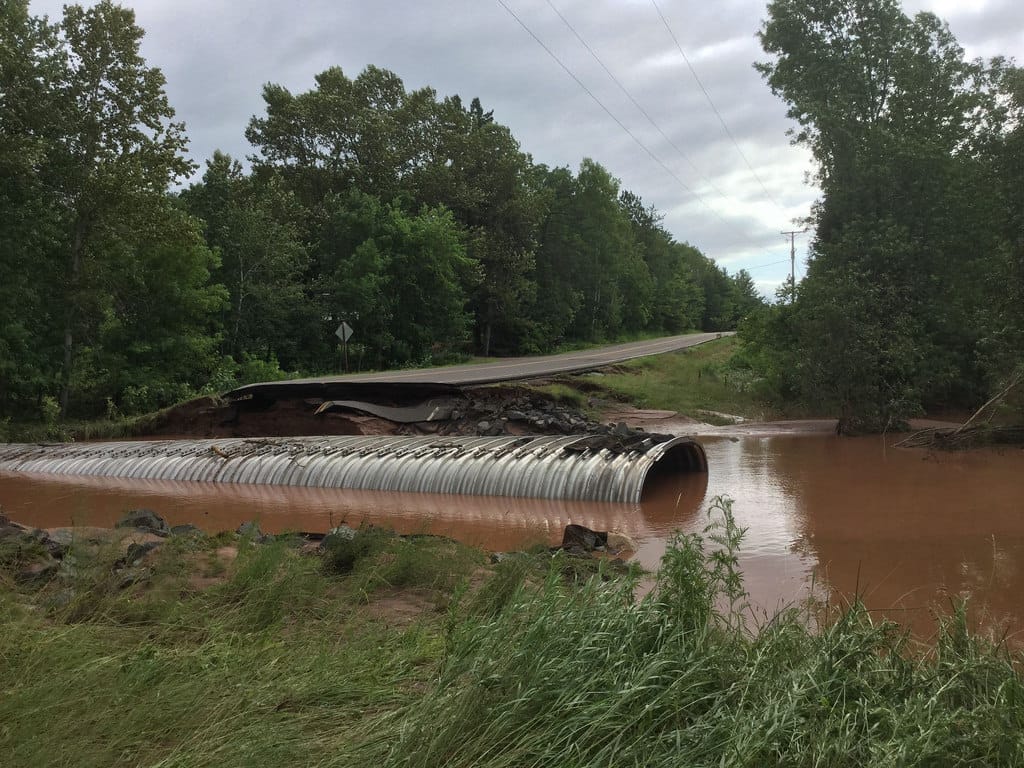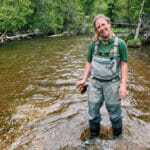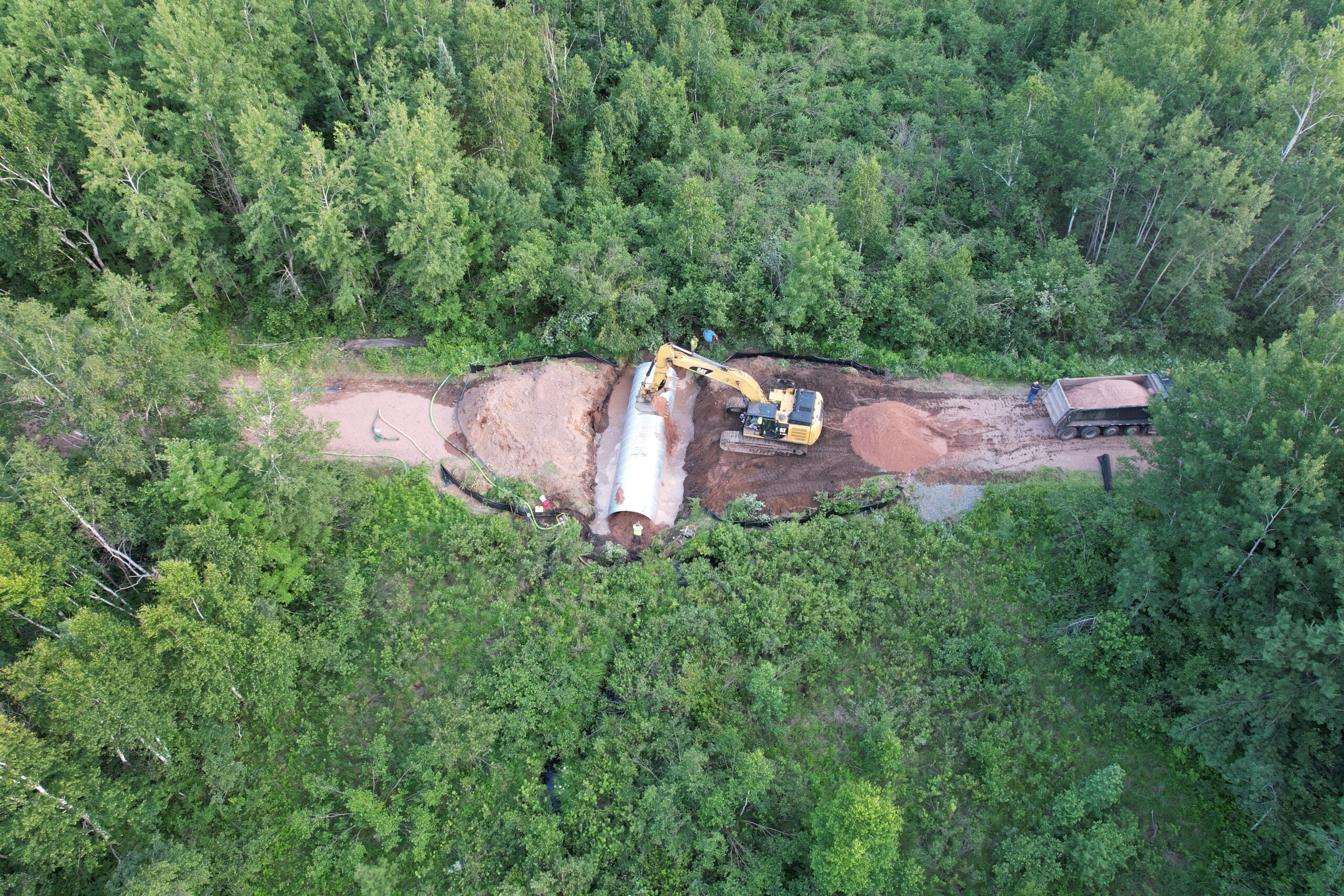A coalition of partners in the Lake Superior basin have been awarded $1.45 million by the National Oceanic and Atmospheric Administration (NOAA) to increase climate resilience in communities hit hard by catastrophic, repetitive flooding.
Earlier this month, Secretary of Commerce Gina Raimondo announced that the Department of Commerce and NOAA have recommended the funding of the project which encompasses the Lake Superior Basin region of Wisconsin, Minnesota and Michigan. The awards are being made under the Biden Administration’s Climate Resilience Regional Challenge, a competitive, $575 million program funded through the Biden-Harris Administration’s Inflation Reduction Act.
The region has endured six federal disaster declarations between 2012 and 2022, causing costly and hazardous road and culvert failures across state, local, and tribally managed roads. Failed roads are often restored to pre-storm conditions because the immediacy of the situation makes it hard to build back better.
Proactively assessing and repairing the landscape’s natural ability to manage floodwaters before disaster strikes helps communities better withstand future storms and reduce the costly and repetitive burden of road repairs.

The project, led by the Northwest Regional Planning Commission and Wisconsin Wetlands Association, involves diverse partners including Trout Unlimited, Superior Rivers Watershed Association, Great Lakes Indian Fish & Wildlife Commission, Lake Superior National Estuarine Research Reserve, and Superior Watershed Partnership, among others.
Collaborative stewardship is the name of the game at Trout Unlimited, and with more than 20 partners involved, this project exemplifies how cooperative partnerships give us a better chance of matching our efforts with the scope of the problems facing flood prone Midwest communities.
This project builds upon years of successful collaboration with communities, agencies, nonprofits, municipalities, and landowners in Wisconsin Priority Waters to assess, prioritize, and implement projects to reestablish the landscape’s capacity to capture, store, infiltrate, and slowly release runoff to prevent future flood damages.

Local road managers and partners tour a road-stream crossing site in 2024.
“With climate change causing more extreme weather events and devastating flooding across our state, building flood resilience through high-impact, nature-based solutions to protect our communities and our natural resources is a top priority for us in Wisconsin,” said Wisconsin Governor Tony Evers. “I’m grateful to the Biden-Harris Administration and NOAA for their support in these efforts and to the Northwest Regional Planning Commission and our partners for developing a program that will make a lasting difference for folks affected by flooding and on our region’s environmental footprint.”
This game-changing investment will build local capacity to prioritize thoughtful watershed restoration that addresses root causes, like the loss of wetlands and floodplain connectivity, with innovative strategies rather than short-sighted quick fixes.
There is no such thing as light work in conservation, but when people come together and get to work, we can tackle even the most complex and insurmountable challenges facing America’s rivers and streams, families, and local communities.
Jamie Vaughan is Trout Unlimited’s Great Lakes engagment coordinator.



